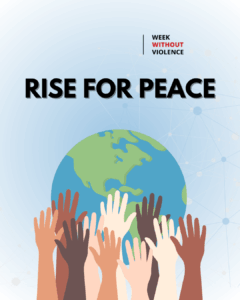Frontline. It’s a word we’ve all heard a lot during the last seven months. The men and women who risk their health to look after our communities are real heroes. Have you considered that there are hidden frontline workers? Sounds a bit paradoxical doesn’t it, but consider the support workers of YWCA Edmonton’s disabled community.
The clients we serve through our Disability Services are individuals who are used to routine and consistency and have been affected by COVID too. They might not understand why their daily routine has changed. Why they can’t go to the places they used to go or do some of the things they used to do. Why the hugs and the high fives have stopped. Why their support workers, people they know as friends, are covering their faces with masks when they see them.
These workers are frontline. The needs of our clients have not stopped at YWCA Edmonton just because COVID started, so we’ve had to figure out ways to continue giving the same level of service in these tricky times.
So what’s the process been like? Well, it’s been a complete 180 from the way disability services was run pre-COVID. We’ve had to become innovative in how to offer support and triaging to those most in need. Who would have thought that life as we knew it would change so fast? But we are nothing if not adaptable.
Isolation has been really tough on our clients and as much as our work routine was uprooted, their daily routine has been uprooted too. Shortly after COVID began, we had to suspend our respite services. Thankfully we are now able to check back in on our clients. But our support homes are concentrated in the COVID-19 hotspot in northeast Edmonton.
It’s really opened our eyes to how potent this virus is and how many lives are affected by it. But our team came together and has stood strong for our clients and their families. As we began to roll out our supports, we needed to change each element of the work we did, and every step has meant 15 additional steps.
Take home visits, for example, we’ve had to make the switch to backyard visits with a lot of our clients. We’ve also been using a lot of online resources and connecting with clients that way, what we call a self advocacy group. Technology has really opened doors for our teams and our families. And with limited day programs, families have been taking on a bigger support role.
So here’s our vision moving forward beyond COVID-19: the goal is to go paperless and make it easier for our staff and clients to operate online. We aim to become more user-friendly with a more adaptive, technology-centred approach. It’s kind of been a blessing in disguise to see just how well digital tech can be adopted into our programs.
What else? The pandemic has made us stop a minute and think about how we do things. We are going to re-evaluate how we do service and assess what we have in place that we don’t need—and what we don’t actually have that we do need. What we do know is that our strength lies in relationships.
So with building and maintaining strong and supportive relationships with our clients as our rallying cry, we will move forward in strength. We have hope for tomorrow, and the new opportunities for connection and healing that we can share with the individuals we are proud to serve.


